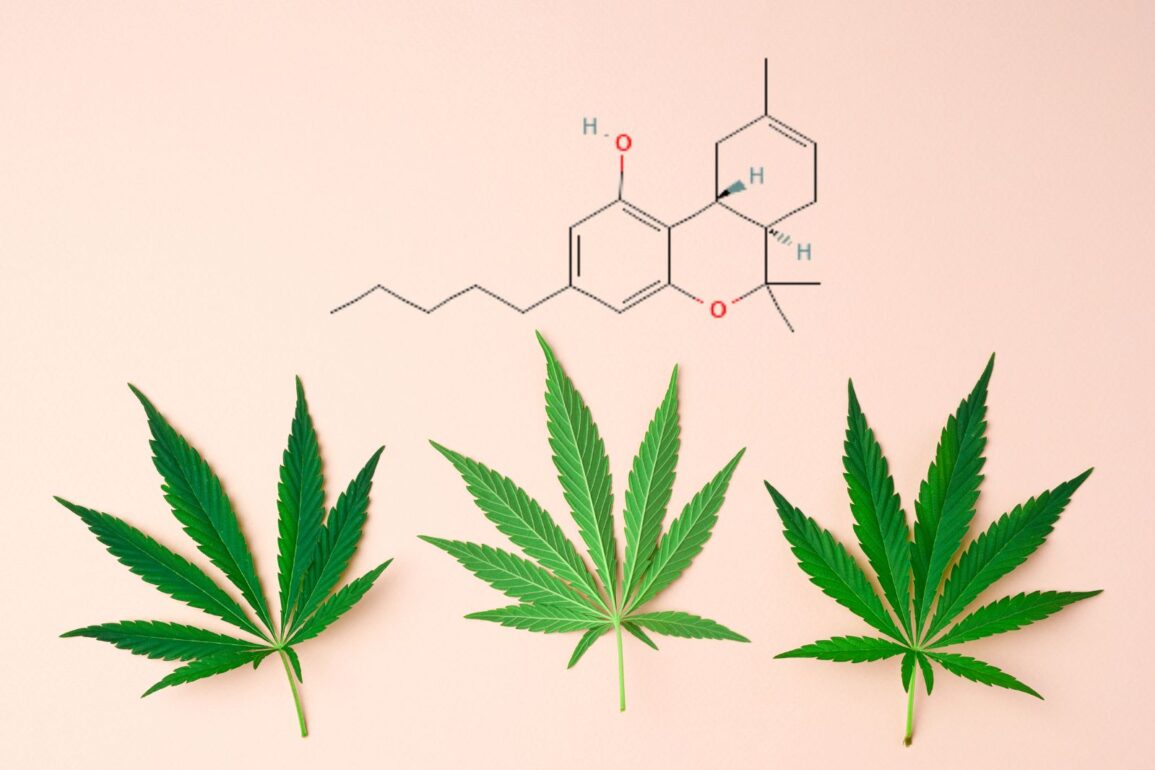Delta-8-tetrahydrocannabinol (Delta-8 THC) is a naturally occurring cannabinoid found in cannabis plants. What is Delta 8 THC? It is one of the many compounds in the plant that can have psychoactive effects. Delta-8 THC is structurally similar to the more well-known cannabinoid, Delta-9 THC, which is the primary psychoactive compound in cannabis.
Delta-8 THC is often derived from hemp, a variety of cannabis that contains low levels of Delta-9 THC. It can also be synthesized from other cannabinoids found in cannabis. Delta-8 THC is known to have milder psychoactive effects compared to Delta-9 THC, resulting in a less intense high for some individuals.
Table of Contents
- What Does Delta-8 do?
- Does delta 8 show up on drug tests?
- Benefits of Delta 8 THC
- Does Delta 8 Get You High?
- Is Delta 8 Legal?
- How Long Does Delta 8 Stay in your System?
- Does Delta 8 have THC?
- How Much THC is in Delta 8?
What Does Delta-8 do?
Delta-8-tetrahydrocannabinol (Delta-8 THC) interacts with the body’s endocannabinoid system, which plays a role in regulating various physiological processes. When consumed, Delta-8 THC can produce a range of effects, although the specific experiences can vary among individuals. Some potential effects of Delta-8 THC include:
Psychoactive effects: Delta-8 THC can produce a mild psychoactive high, although it is generally reported to be less potent than the high produced by delta-9-tetrahydrocannabinol (Delta-9 THC), the primary psychoactive compound in cannabis.
Relaxation and euphoria: Users often describe feelings of relaxation, calmness, and mild euphoria when using Delta-8 THC.
Appetite stimulation: Similar to Delta-9 THC, Delta-8 THC may increase appetite and induce the “munchies.”
Pain relief: Delta-8 THC has been reported to have analgesic properties, potentially providing relief from mild to moderate pain.
Reduced nausea and vomiting: Delta-8 THC has shown potential as an antiemetic, meaning it may help alleviate nausea and vomiting.
It’s worth noting that scientific research on the specific effects of Delta-8 THC is limited, and anecdotal evidence forms the basis of most of the information available. Individual experiences can vary, and the effects may depend on factors such as dosage, purity, and personal tolerance. If you are considering using Delta-8 THC, it’s important to understand the legal status in your jurisdiction and consult with a healthcare professional for personalized advice.
Whether or not Delta-8 THC is considered “weed” depends on how the term is defined. Typically, “weed” or “marijuana” refers to the cannabis plant or its products that contain significant amounts of Delta-9 THC, which is the primary psychoactive compound in cannabis. Delta-8 THC is a distinct cannabinoid that has its own unique properties and effects.
The legality and classification of Delta-8 THC can vary depending on the jurisdiction, as well as local regulations and definitions of cannabis or marijuana. It is important to research and understand the specific laws and regulations in your location to determine how Delta-8 THC is classified and regulated.
Does delta 8 show up on drug tests?
Yes, delta-8-tetrahydrocannabinol (Delta-8 THC) has the potential to show up on drug tests. While Delta-8 THC is chemically similar to Delta-9 THC (the primary psychoactive compound in cannabis), it has a slightly different molecular structure. Some drug tests specifically target Delta-9 THC or its metabolites, while others may also detect other THC variants, including Delta-8 THC.
It’s important to note that the legality and regulations surrounding Delta-8 THC vary between jurisdictions. In some places, it may be legal and readily available, while in others, it may be prohibited or subject to certain restrictions. Therefore, it’s advisable to consult local laws and regulations to understand the legal status of Delta-8 THC in your specific location.
If you are concerned about passing a drug test, it’s best to avoid using any THC products, including Delta-8 THC, as there is a possibility of a positive result.
Benefits of Delta 8 THC
While there is anecdotal evidence and individual claims about the potential benefits of delta-8 THC, it’s important to note that scientific research on the specific effects and benefits of this compound is limited. Delta-8 THC is structurally similar to delta-9 THC, the primary psychoactive compound in cannabis, but its effects may be milder.
Some potential benefits associated with delta-8 THC include:
Reduced anxiety: Some users report experiencing a calming and anxiety-reducing effect from delta-8 THC, although further research is needed to establish its efficacy.
Pain relief: Delta-8 THC may have analgesic properties and could potentially provide relief from mild to moderate pain. However, more scientific studies are necessary to confirm these effects.
Appetite stimulation: Like delta-9 THC, delta-8 THC may have an appetite-stimulating effect, which could be beneficial for individuals with appetite issues or those undergoing treatments that affect their appetite.
Nausea and vomiting relief: Delta-8 THC has been studied for its potential antiemetic properties, suggesting it may help reduce nausea and vomiting. However, further research is needed to determine its effectiveness and safety.
It’s important to remember that individual experiences may vary, and the effects of delta-8 THC can depend on factors such as dosage, purity, and individual tolerance. Additionally, the legal status of delta-8 THC varies between jurisdictions, so it’s essential to be aware of local regulations before using or purchasing it. As with any cannabinoid product, it is advisable to consult with a healthcare professional before use.
Does Delta 8 Get You High?
Yes, delta-8-tetrahydrocannabinol (Delta-8 THC) can produce psychoactive effects and get you high. While the intensity of the high may vary among individuals, Delta-8 THC is known to have psychoactive properties similar to Delta-9 THC, the primary psychoactive compound in cannabis.
However, it’s worth noting that the high produced by Delta-8 THC is generally reported to be milder and less intense compared to that of Delta-9 THC. Some users describe the effects of Delta-8 THC as being more relaxing and less anxiety-inducing, which can make it a preferred option for individuals seeking a more subtle or manageable high.
It’s important to remember that the subjective experience of being “high” can vary depending on the individual, dosage, and other factors. If you are considering using Delta-8 THC, it’s recommended to start with a low dosage and understand the potential legal implications and regulations regarding its use in your jurisdiction.
Is Delta 8 Legal?
The legality of delta-8-tetrahydrocannabinol (Delta-8 THC) varies depending on the jurisdiction. In the United States, for example, the legal status of Delta-8 THC is a subject of ongoing debate and can vary from state to state. Some states have specifically legalized Delta-8 THC, while others have placed restrictions or bans on its sale or possession.
It’s important to note that even if Delta-8 THC is legal in your state, there may still be regulations and restrictions on its production, distribution, and sale. It’s advisable to check with local laws and regulations to understand the specific legal status of Delta-8 THC in your jurisdiction.
How Long Does Delta 8 Stay in your System?
The duration that delta-8-tetrahydrocannabinol (Delta-8 THC) stays in your system can vary depending on several factors, including the frequency and amount of use, metabolism, body composition, and individual differences. However, here are some general estimates:
Urine: Delta-8 THC can typically be detected in urine for up to 1-2 days after use. However, in heavy or chronic users, it may be detectable for a longer period, potentially up to a week or more.
Blood: Delta-8 THC is usually detectable in the bloodstream for a shorter duration compared to urine. It can be detected within a few hours to a couple of days after use, depending on the individual and the sensitivity of the test.
Saliva: Delta-8 THC can be detected in saliva for a shorter period compared to urine, typically up to 24-48 hours after use.
Hair: Delta-8 THC can be detected in hair follicles for a longer duration compared to other testing methods. It may be detectable for up to 90 days or more, depending on the length of the hair sample and the frequency of use.
It’s important to note that these are general estimates, and individual results may vary. Additionally, the sensitivity and accuracy of drug tests can also impact detection times. If you are concerned about the presence of Delta-8 THC in your system, it’s advisable to consult with a healthcare professional or testing facility for more accurate and personalized information.
Does Delta 8 have THC?
Yes, delta-8-tetrahydrocannabinol (Delta-8 THC) does have THC (tetrahydrocannabinol). Delta-8 THC is a variant of THC, specifically an analog of delta-9-tetrahydrocannabinol (Delta-9 THC), which is the primary psychoactive compound found in cannabis.
While Delta-8 THC and Delta-9 THC have similar chemical structures and produce psychoactive effects, there are slight differences in their molecular arrangements. These differences can result in variations in potency and the subjective experience of the high.
It’s important to note that the legal status and regulations surrounding Delta-8 THC can vary depending on the jurisdiction. Some regions have specific laws and regulations pertaining to Delta-8 THC due to its THC content. Therefore, it’s advisable to check the local laws in your area to understand the legal status of Delta-8 THC and any restrictions that may apply.
How Much THC is in Delta 8?
The amount of delta-8-tetrahydrocannabinol (Delta-8 THC) present in a product can vary depending on various factors, including the method of extraction, source material, and manufacturing process. Generally, Delta-8 THC is present in lower concentrations compared to delta-9-tetrahydrocannabinol (Delta-9 THC), which is the primary psychoactive compound in cannabis.
Delta-8 THC occurs naturally in cannabis plants in relatively small amounts, typically in single-digit percentages of the total cannabinoid content. For example, a cannabis strain might contain around 0.1% to 1% Delta-8 THC.
However, it’s worth noting that Delta-8 THC can also be produced through chemical conversion or synthesis from other cannabinoids, such as CBD (cannabidiol). In such cases, Delta-8 THC can be produced in higher concentrations, reaching levels of 50% or even higher.
The specific Delta-8 THC content in a product should be indicated on the product label or available from the manufacturer. It’s important to check the product’s lab test results or certificates of analysis (COA) to verify the potency and ensure accurate information about the Delta-8 THC content.
It’s worth reiterating that the legality and regulations surrounding Delta-8 THC can vary between jurisdictions. It’s advisable to research and understand the local laws and regulations regarding Delta-8 THC in your specific location.
Disclaimer – The contents of this article are provided solely for informational purposes and should not be considered medical advice. It is important to note that the information presented here is not meant to diagnose, treat, cure, or prevent any disease. Prior to embarking on any new health-related regimen, Always consult your healthcare provider before trying new supplements or treatments. Keeping you safe and well is our top priority. Additionally, it’s important to note that the FDA has not endorsed any claims regarding the health benefits of cannabis. Delta8Hub makes no guarantees or warranties regarding the accuracy, completeness, or usefulness of any messages contained here in

